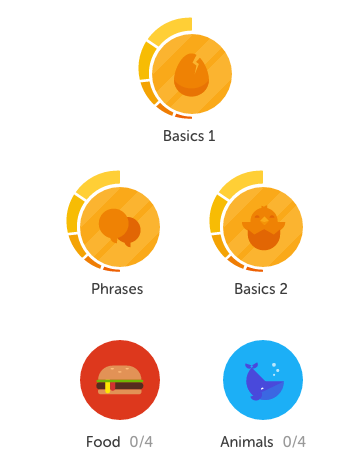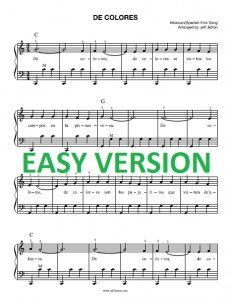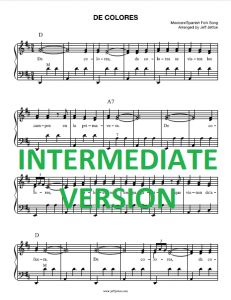One of the cool things about the accordion is that it spans so many cultures and languages. You can hear the instrument in Polish polkas, French bal musette, Irish jigs… the list goes on. (Literally: There’s an actual list.) I’d guess that probably only the violin/fiddle is more ubiquitous in the traditional music of so many people.

My Spanish progress so far on Duolingo. You gotta start somewhere…
When you play such a multicultural instrument, it can be handy to learn some of these spoken languages too. Knowing a few words of Italian, for example, makes playing all those Italian accordion standards that much more interesting.*
So far I’ve managed to learn a bit of what I call the “opera languages” (Italian, German, and French). Nothing fancy… mostly just enough to order something in a restaurant or bar while traveling. My German is even passable enough by now to have a rudimentary conversation, provided a few charades-style hand gestures are allowed.
But now I’ve decided to learn some Spanish. I really don’t know why I’ve put it off so long since, in this country, it’s so widely spoken and there are so many convenient opportunities to learn and practice it. Plus it has so much great accordion-based music!
With all that in mind, here’s a good Spanish-language song to know: De Colores. The exact origins of the song are a bit cloudy, but it’s a fun tune with a wonderful sentiment about different colors (both literal and figurative) adding up to so much beauty in our world.
I’ve arranged two versions–one easy (Palmer Hughes Book 1 level) and one a bit more advanced (maybe late Book 3 level?). Choose whichever you like below, or combine ideas from both. Buena suerte!
* Technically, the lyrics of many Italian standards, such as ‘O Sole Mio, are actually written in Neapolitan dialect. Knowing standard Italian only gets you so far! Same thing happens with German music–a good portion of it is sung in a Bavarian dialect that is significantly different from standard Hochdeutsch German.



